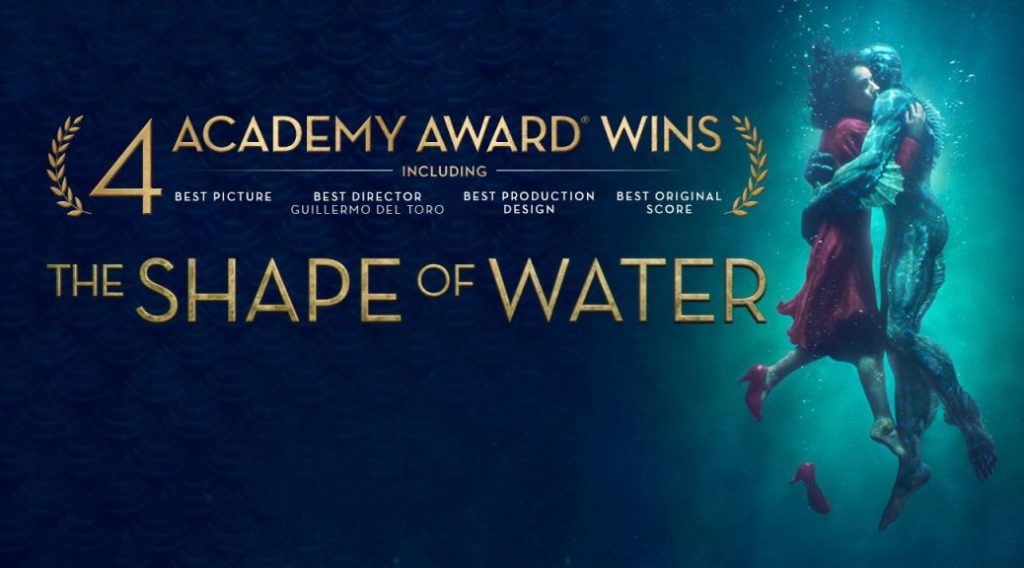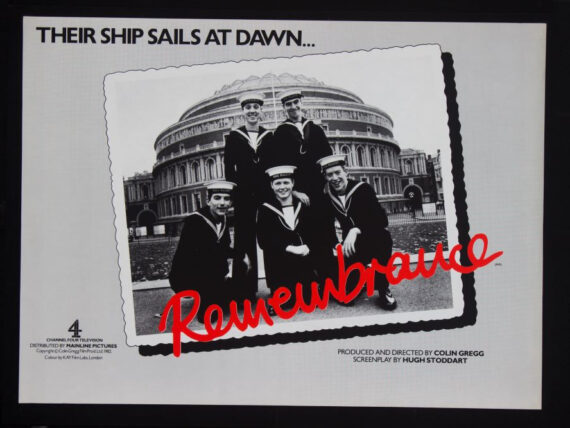There is no easy way to introduce The Shape of Water. A love story between a woman and a mythical sea creature, this film announces its oddity right from the start.
The pet project of director Guillermo del Toro, this film has taken years to make. Not least, one imagines, because starting a pitch to investors with “There’s this man-fish…” is not the quickest sell.
But, as is sometimes the way with film-making, it is the oddity that creates a moment of rare magic. The winner of four Oscars, including Best Director and Best Picture, The Shape of Water is a film that revels in its uniqueness, but behind the production values, there is a strength of purpose that elevates this film beyond spectacle.
Set in the early 1960’s, we meet Elisa Esposito (Sally Hawkins), who works as a cleaner in a high-security military base in Baltimore. Elisa experiences selective mutism, but with the support of her circle of friends; neighbour Giles (Richard Jenkins) and colleague Zelda (Octavia Spencer), she lives with relative independence.
Elisa and Zelda’s lives at the base are disrupted after a delivery is made; a top-secret acquisition. As cleaners, Elisa and Zelda are the unseen and unheard. Elisa manages to sneak into the laboratory where the acquisition is kept. The acquisition is a man; half-fish, half-mythical creature. There is no frame of reference for him. He is, in every sense, extraordinary. Elisa is captivated.
In reviewing a film that is so original, it is hard not to fall into cliches. The Shape of Water can be called ‘immersive’, ‘quirky’ and ‘melancholy’ – and it is all these things. But where Guillermo del Toro gets really clever is in how he approaches the problem of the cliché. The lovelorn single girl, her closeted gay neighbour. The mystical sea creature caught and imprisoned for illegal testing, and the cruelty meted out by the military, determined to keep hold of their prize.
Nothing here, narratively speaking, is unexpected. Where The Shape of Water diverges from cinematic cliché, is in the telling of its story. Using a filmic landscape that jumps from the dullness of a Monday morning, to the full-blown glamour of a Hollywood song and dance number, del Toro applies the familiar tropes of cinema and television with a freshness that feels like a puzzle solved.
At the heart of the narrative, is our heroine. Elisa lives a life that is isolated, but filled with the spirit of silent rebellion. Her demeanour – calm, studied – hides an interior that is brave, passionate and gutsy. As she discovers the sea creature smuggled into the base, her instinct is not to shy away, but to communicate.
Sally Hawkins’ silent performance is punctuated with signs and subtitles, but her eloquence and clarity mean that we know exactly what is being said. Hawkins’ Oscar-nominated role is such an effortless shift, you begin to wonder how close that Oscar vote was. Nothing is missing from Hawkins’ delivery – she gives us the complete character.
It is a film gifted with strong performances. In a Boardwalk Empire reunion, Michael Shannon and Michael Stuhlbarg share the screen again – interestingly, their characters still at odds with each other. As Richard Strickland, the man put in charge of the secret project, Shannon has perfected the art of the bastard. A middle manager, Strickland is under enormous pressure to deliver results. His working methods become increasingly volatile and belligerent, as the project spirals out of control. But in his unspoken love for Elisa, there is just enough humanity left in him to make us wonder if he is capable of making the right choice.
The secrecy of the military base – whispered conversations, codes and protocols – becomes a brilliant metaphor for the period of the film. Not quite Space Age, too early for Vietnam and Free Love, this is buttoned-down America. Manners hide incivility; rules are a source of comfort, rather than the grain to work against. Rebellion has to be covert, silent – and Elisa’s just the girl to get it started.
The criticism that’s been levelled at this film is that it is too lush, too richly visual. Del Toro clearly enjoys drawing our attention to details; the hum and flicker of Giles’ television he and Elisa huddle around, the sleekness of the carefully-mopped floors of the military lab. Texture is everywhere in this film; you can almost smell the disinfectant trailing down the corridor after Elisa and Zelda finish another shift.
Without a reliance on words, the other senses become heightened. The Shape of Water is full-on in its depiction of detail, because that’s the language it has chosen. Del Toro’s colour palette – bruising greys, sludgy greens – is hardly the stuff of romance, but these shades are the emblem worn by our aquatic leading man. We are asked to consider the unexpected from another angle, and under Gullermo’s direction, banal has never looked so beautiful.
Like much of Del Toro’s work (Pan’s Labyrinth, Hellboy), The Shape of Water defies categorisation. Within this love story, there is a sincerity even the most cynical would find hard to resist. It is a perfect film for now. When everything we see and hear has been edited down or glossed over, a film that is happy to be itself is highly appealing. Viewed under del Toro’s lens, the conventional becomes the thing to be probed and tested. A good film should leave you with questions, and The Shape of Water absolutely does that.
Throughout his career, del Toro has knocked the idea that fantasy can’t have something to say about the real world. As a political voice behind and in front of the camera, Guillermo suggests that in examining truth and certainty, we will find them lacking.
Could there could be another way to exist; something more meaningful, more satisfying? It is shown to us throughout the film, in the characters’ ability to challenge what is in front of them. To obey, agree and stay silent – the film only begins to move when these notions are shaken. The adventure starts when they resist, demur and speak up. Things begin to happen. Their world spins that little bit faster.
It is this that Guillermo del Toro wants us to consider for ourselves. Do we want a world that spins a little bit faster? Tantalising, with promise, it is there, he argues. Just there, beneath the surface.
Helen Tope
The Shape of Water is showing at Tinside Lido on Friday 24 August as part of our Open Air Cinema season. This event is sold out, but if you want to delve a little deeper into the world of Director Guillermo del Toro, join us for Pan’s Labyrinth at Mount Edgcumbe on Friday 17 August.









Comments
Comments are closed.